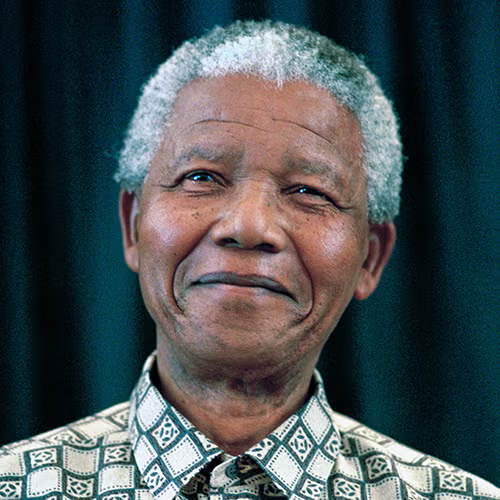The need for media literacy among religious clerics, in an era dominated by digital technology, the role of media has become more significant than ever.
Religious clerics, who have long held influence over their communities, must now embrace the modernity of the new media landscape with great care.
As the media continues to shape public discourse, it is essential for religious figures to embrace media literacy.
This involves understanding how to use media ethically, communicate responsibly, and extend divine messages in a manner that fosters peace and unity rather than division.
Media Ethics: A Vital Need for Religious Leaders
Media ethics are crucial in today’s digital world, where information spreads faster than ever before.
Clerics, like any other public figures, can either uplift their communities or contribute to discord through their media presence.
The messages they convey have a profound impact on the followers who listen to them, making it important for them to be cautious about their language and tone, as linguist continue to redeem the importance of diction utility.
Religious leaders are not just spiritual guides, however, they are also influential communicators.
When they speak or write, their words can reach thousands, if not millions. Hence, their understanding of media ethics remains paramount.
Unfortunately, some religious clerics may fail to appreciate the power they wield in the digital space.
This can lead to the use of inappropriate language, including vulgarities or offensive terms, which can alienate people from different backgrounds or religious sects.
Inflammatory language has the potential to incite division, hatred, and conflict, undermining the message of peace and unity that many religions strive to promote.
The first step towards media literacy for religious clerics is recognizing the importance of using language that is respectful and considerate.
Clerics should be aware that the words they choose matter not just to their own followers, but to those who might interpret their words in a different light.
The use of vulgar words or aggressive tones in their messages can create lasting harm by deepening divides within society.
“Media literacy in this context, involves understanding the consequences of their words and choosing to speak in a way that fosters mutual respect and understanding”.
Extending Divine Messages in a Peaceful Manner
A crucial part of media literacy for religious clerics is recognizing how to extend divine messages effectively.
While religious teachings often call for strong convictions, it is essential to deliver these teachings in a peaceful and critical manner.
Rather than relying on forceful rhetoric, clerics should use media platforms to create a dialogue rooted in reason, understanding, and peace.
In the context of social media, for example, a simple tweet or a post can reach a massive audience in seconds.
This power should not be use encourages clerics to think critically about the messages they share.
They must be conscious of their tone, the words they use, and the impact of their statements on the broader community.
A divine message delivered with love, respect, and clarity will not only be well received but will also promote the peaceful coexistence of people from different beliefs and sects.
Clerics need to embrace modern forms of communication without abandoning the ethical and spiritual standards that define their role in society.
They should utilize platforms such as blogs, podcasts, and social media to share divine wisdom while maintaining the dignity of their message.
Emphasizing peace and mutual understanding can build bridges between different communities, highlighting the universal principles of love, compassion, and kindness that many religions promote.
The Risk of Digital Divides
One of the biggest risks when religious clerics fail to embrace media literacy is the possibility of creating further divides within already fractured societies.
In a world where religious and cultural tensions are often heightened, clerics must recognize the potential harm that can come from careless media use.
When messages are framed in a combative or exclusionary way, they can fuel sectarian conflicts, fostering division instead of harmony.
For instance, inflammatory rhetoric may trigger an “us versus them” mentality, where individuals from different religious or ideological backgrounds are viewed with suspicion or hostility.
Clerics have the responsibility to steer their communities away from such divisiveness.
Media literacy provides the tools to convey divine teachings in a way that promotes unity rather than division.
The Role of Religious Institutions in Media Education
Religious institutions themselves also play a crucial role in fostering media literacy among their leaders.
Educational programmes and workshops aimed at improving media literacy could help clerics better understand the complex nature of digital communication.
Such training would help them discern credible sources, understand the power of social media, and use these tools responsibly.
Religious leaders should be equipped with the knowledge to not only use media ethically but also to critique and analyze content.
In a world where misinformation and sensationalism are rife, the ability to distinguish between accurate and false information is vital.
Conclusion:
The need for media literacy among religious clerics is not just about avoiding inappropriate language or content.
It is about using their media presence to advance peace, dialogue, and understanding.
Media literacy is an essential tool for today’s religious leaders to fulfil their calling in a world that is increasingly shaped by digital communication.
Religious figures, as trusted leaders and communicators, have the power to influence the hearts and minds of millions.
The challenge they face is learning how to use this power responsibly, ensuring that their messages not only uplift their own communities but contribute to the broader goal of peace at all levels.





















































































